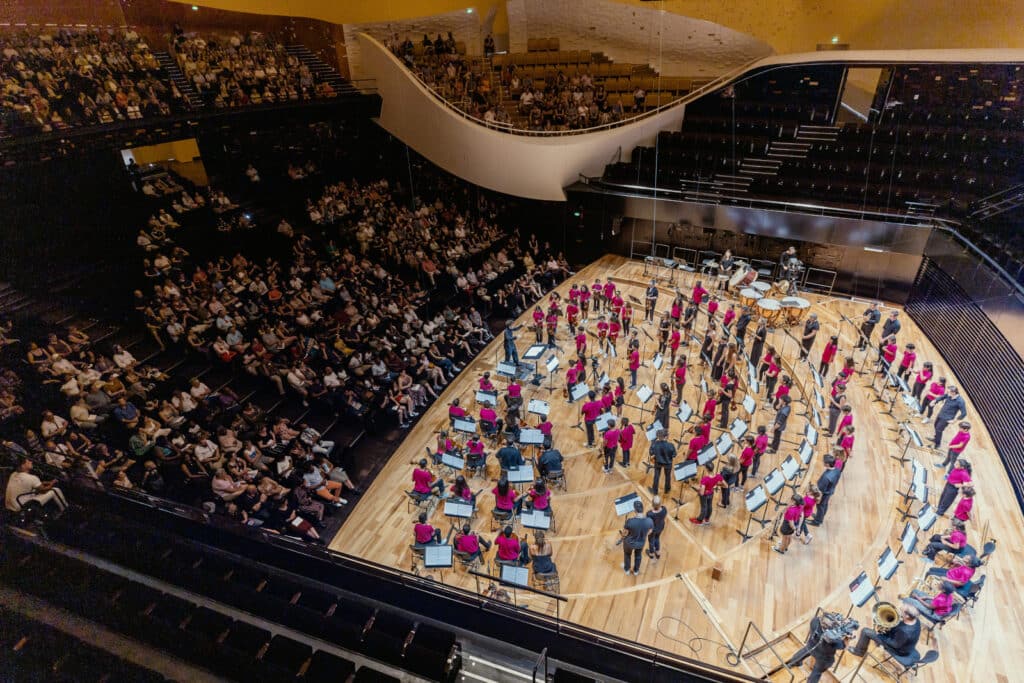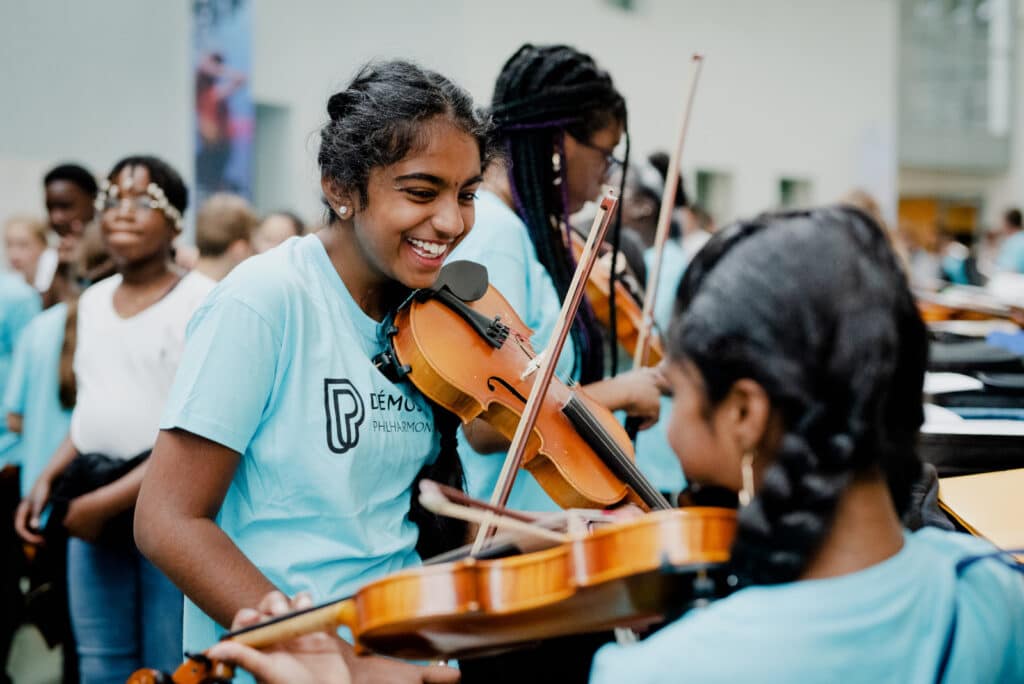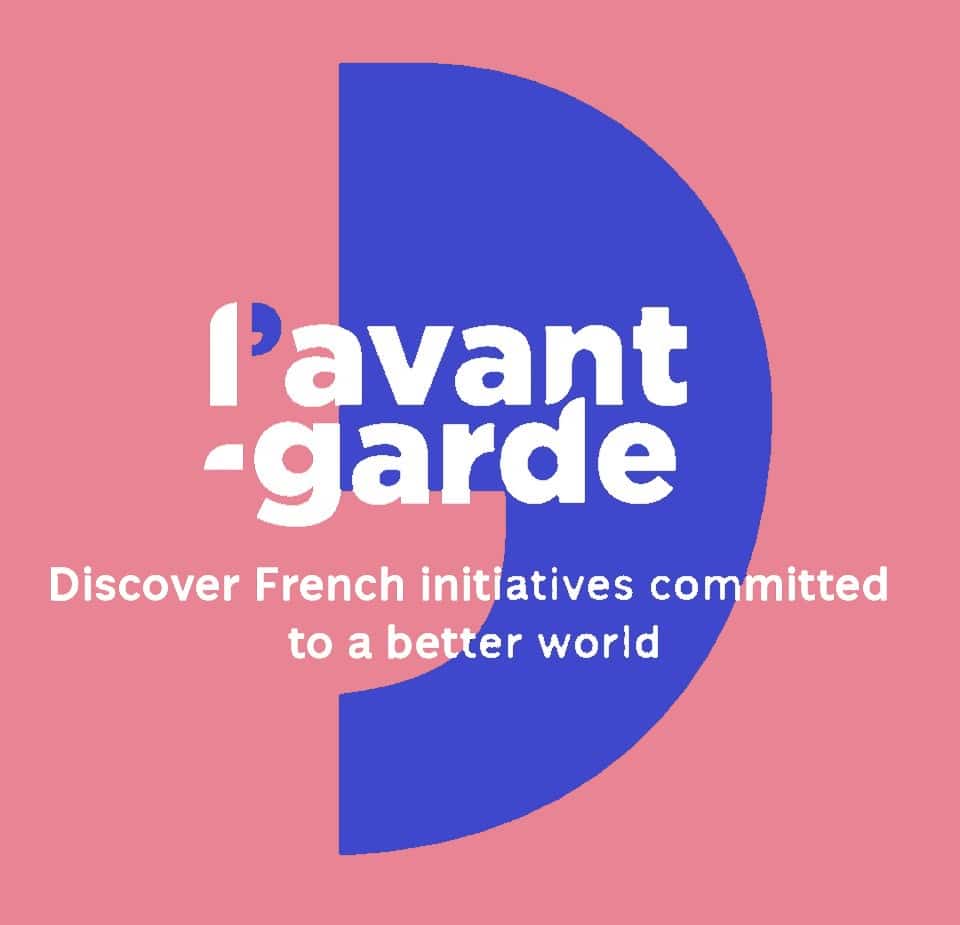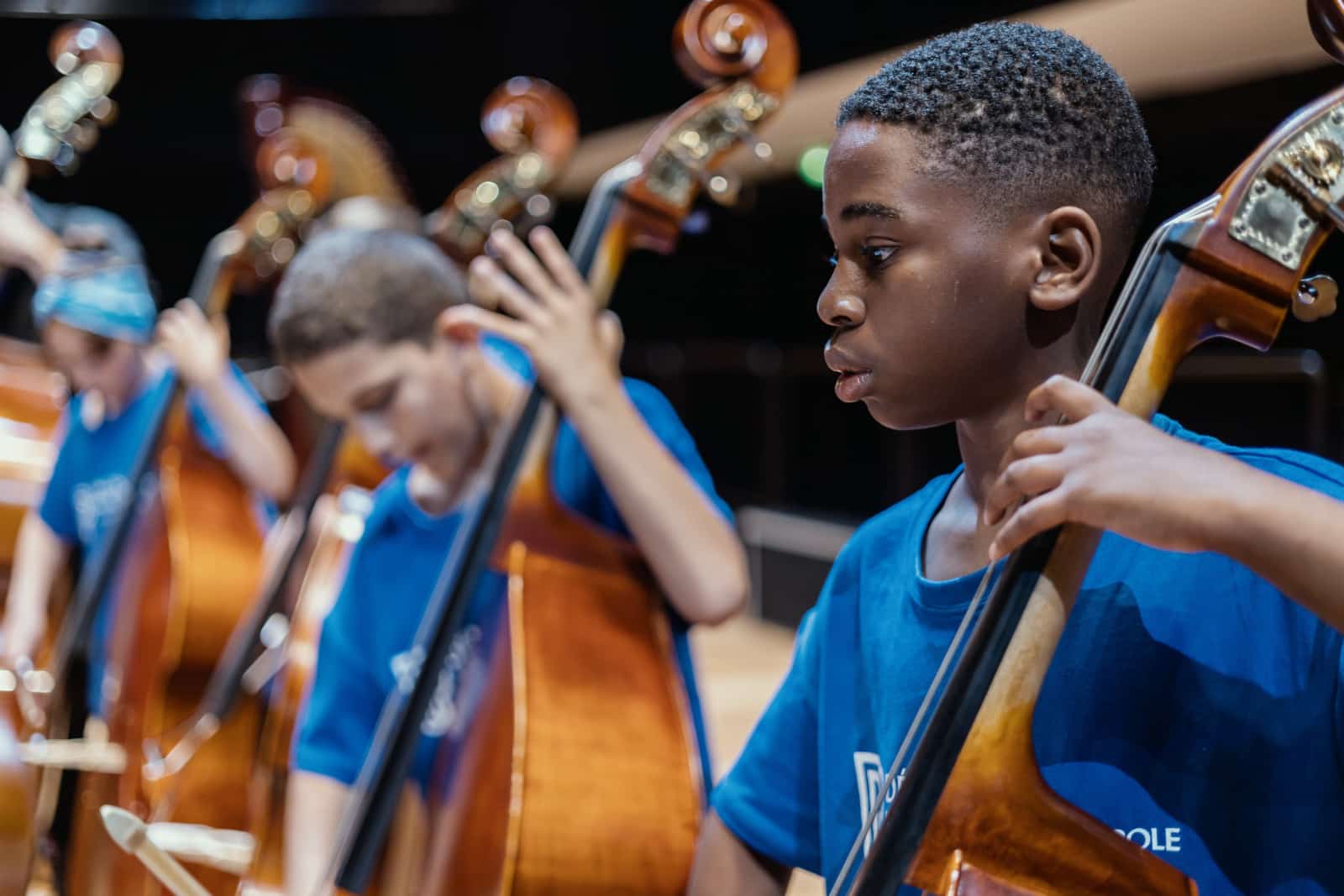A Musical Mission
The Philharmonie de Paris has three main aims. “Our global aim is to share all kinds of music with all kinds of audiences,” said Nina Tchernitchko, Development Officer at Philharmonie de Paris. Concerts featuring the greatest international ensembles and their own orchestras are presented at the Philharmonie, playing classical music of course, but also various musical styles, like traditional, pop, and jazz. The second mission is to preserve and promote musical heritage, through musical exhibitions. The third mission is to share music through workshops, which are organized for all kinds of people at any age; those at the Philharmonie can learn how to play music at any age!
Making Musical History
Demos was created in 2010 by the Cité de la Musique, then amplified by the Philharmonie from 2015 on. What started as a test project with the French Ministry of Culture has now expanded into more than 50 orchestras in France with about 5,000 children enrolled. Having started with fewer orchestras, more and more children joined as the project grew. These orchestras are located in larger cities, like Lyon, Bordeaux, and Strasbourg, encompassing some neighborhoods from the suburbs and in rural areas, like in the Thouarsais region, as well as spread on oversea French territories such as West Indies and Mayotte.

The Difference Demos Makes
Demos helps children overcome economic and geographical barriers that may have otherwise prevented them from access to musical education. Those living in underprivileged or rural neighborhoods may have obstacles that disconnect them from the cultural world. Demos breaks through those barriers and connects children to the musical and cultural world. Besides supplying children with instruments, teachers, and music sheets that otherwise may have been costly, cultural visits to museums and concerts at the Philharmonie are provided. A specific concern about the childrens’ closer environment leads the Philharmonie to involve the children’s parents and families into Démos, making them take part in concerts, choirs, and visits.
Children join at the age of 7-12 years old, but can join a second time later on. After having joined Demos, children benefit from 3-4 weekly hours of musical practice, instructed from composers and teachers, in their neighborhood. Once a month, they practice in an orchestra at a prestigious venue. Once a year, an end of season concert is given at the Philharmonie’s main concert hall welcome 2,500 people. Young musicians from all over France are invited to play. It’s a pleasure and a great pride for families to enjoy the fruits of their childrens’ hard-work. Another special concert children put on is for the sponsors at the Louvre. 100-200 children are invited from different orchestras and perform for their families and sponsors.
In addition to making connections with sponsors, forming friendships, and introducing classical music to families’, children reap cognitive benefits. It has been shown that children who practice an instrument have greater concentration and better school results. A strong link between playing a musical instrument and having a higher IQ exists. Eventually, benefits from Démos also are palpable among the families involved.
The Future for Demos
“There are many new paths that we want to open considering Demos,” said Tchernitchko. This September, Demos will be collaborating with a high school close to the Philharmonie to start a new program targeted for children who have a talent for music and are interested in becoming professional musicians. The project is called “Classe à horaires aménagés,” meaning “Class at adaptable times.” This program will give students the opportunity to attend regular classes in the morning and music lessons in the afternoon. Diversity is one of their next primary goals. “[The] final aim is to have more diversity on the French stage…we want to make Professional musicians more diverse, coming from different origins and having different backgrounds,” says Tchernitchko. This past year, they created their first orchestra with disabled children. In the next year, they would like to have more diversity on the French stage. Lastly, they are interested in developing Demos in rural areas and new French territories, like Mayotte.

Support a Social Cause and Change Childrens’ Lives
The Philharmonie de Paris first collaborated with Friends of Fondation de France in 2003 to facilitate the contribution of a particular donor who is based in the US and still supports the Demos project.
If you are interested in positive action, social integration, and classical music, consider supporting this cause. Support from donors like you help extend the creation of orchestras, inclusion of children, and purchase of musical instruments. Donate today to amplify the effects of Demos initiatives and change the lives of many more children throughout France.




